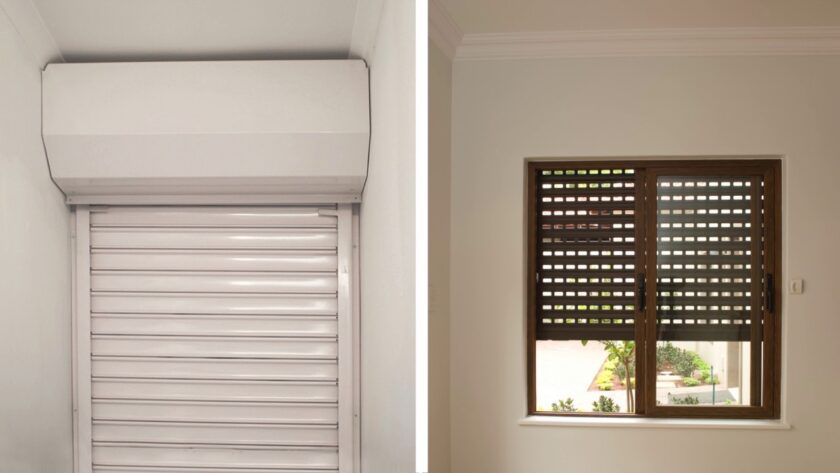In the world of doors and windows, modern roller shutters have carved out a unique niche as versatile and practical solutions for both residential and commercial properties. However, they are not the only options available. In this article, we’ll compare roller shutters to other types of doors and windows to help you make an informed choice that suits your specific needs.
1. Roller Shutters vs. Traditional Windows
Traditional windows have been a staple in buildings for centuries, offering natural light and ventilation. However, when compared to modern roller shutters, they have some limitations:
- Security: Roller shutters provide a higher level of security by acting as a physical barrier that is difficult to breach. Traditional windows, on the other hand, are more vulnerable to break-ins.
- Privacy: Roller shutters offer better privacy control. You can adjust them to block visibility into your space, while traditional windows often require curtains or blinds for privacy.
- Insulation: Roller shutters are superior insulators, providing energy efficiency by reducing heat transfer. Traditional windows may require additional treatments for insulation.
- Noise Reduction: Roller shutters excel in noise reduction due to their solid construction. Traditional windows may allow more noise to enter your space.
2. Roller Shutters vs. Standard Doors
Standard doors, whether wooden, metal, or glass, serve as entry points and often come with their own sets of advantages and disadvantages when compared to roller shutters:
- Security: Roller shutters offer higher security levels, as they cover the entire opening and are more resistant to forced entry. Standard doors may need additional security features.
- Space-Saving: Roller shutters roll up compactly, saving space when open. Standard doors swing open, requiring clearance space.
- Insulation: Roller shutters provide better insulation against heat, cold, and noise. Standard doors may not offer the same level of insulation.
- Light Control: Roller shutters allow you to control the amount of light entering your space more effectively. Standard doors are less versatile in this regard.
3. Roller Shutters vs. Garage Doors
Garage doors and modern roller shutters share similarities in function and security. Here’s how they compare:
- Security: Both garage doors and roller shutters provide excellent security for your property. They are both sturdy and difficult to breach.
- Space-Saving: Roller shutters roll up vertically, saving space inside and outside the garage. Some garage doors, such as sectional or roll-up doors, offer similar space-saving benefits.
- Insulation: Roller shutters often have superior insulation properties. However, insulated garage doors are available and provide good thermal performance.
- Remote Control: Both roller shutters and garage doors can be equipped with remote control systems for convenience.
4. Roller Shutters vs. Blinds and Curtains
Blinds and curtains are common window coverings, but they have distinct differences when compared to roller shutters:
- Security: Roller shutters provide enhanced security compared to blinds and curtains, which are primarily for privacy and light control.
- Insulation: Roller shutters offer better insulation against heat, cold, and noise. Blinds and curtains provide some insulation but not to the same extent.
- Durability: Roller shutters are durable and less prone to wear and tear compared to blinds and curtains, which may need replacement or maintenance over time.
- Automation: Roller shutters can be easily automated for convenience, while blinds and curtains may require manual operation.
5. Roller Shutters vs. Awnings
Awnings are another option for controlling light and providing shade. Here’s how they compare to roller shutters:
- Security: Roller shutters offer superior security compared to awnings, which are primarily for sun protection and aesthetics.
- Insulation: Roller shutters provide better insulation against heat, cold, and noise. Awnings primarily offer shade.
- Durability: Roller shutters are more durable and resistant to adverse weather conditions than awnings, which can deteriorate over time.
- Automation: Roller shutters can be easily automated, while awnings may require manual adjustment.
Conclusion:
Modern roller shutters offer a range of advantages, including enhanced security, privacy, insulation, and noise reduction. While other types of doors and windows have their own merits, roller shutters excel in providing a comprehensive solution that addresses multiple needs. When considering your options, carefully evaluate your priorities and requirements to determine whether roller shutters are the ideal choice for your property.




